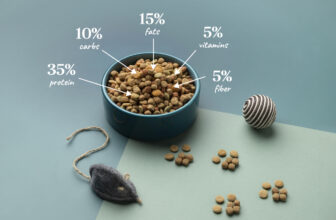
As pet owners, we all strive to provide the best care for our furry friends, and a crucial aspect of their well-being is nutrition. While a balanced diet is essential, many pet owners wonder whether dietary supplements are necessary and how they can benefit their pets. In this article, we will explore when and why pets may need dietary supplements, helping you make informed decisions about your pet’s health.
Understanding Dietary Supplements for Pets
Dietary supplements are products intended to enhance a pet’s diet and provide specific nutrients that may be lacking in their regular food. These supplements can come in various forms, including tablets, powders, liquids, and chews. Common types of supplements include vitamins, minerals, fatty acids, probiotics, and herbal products.
When Are Supplements Necessary?
1. Nutritional Gaps in Diet
Despite the availability of commercially prepared pet food that meets AAFCO (Association of American Feed Control Officials) standards, some pets may still experience nutritional gaps. Factors contributing to these gaps can include:
-
Homemade Diets: Pet owners who prepare homemade meals may inadvertently create unbalanced diets lacking essential nutrients. In such cases, supplements can help bridge these gaps.
-
Low-Quality Commercial Food: Not all pet foods are created equal. Lower-quality brands may lack the necessary nutrients or use inferior ingredients, making supplementation important to ensure a balanced diet.
2. Specific Health Conditions
Pets with certain health conditions may benefit from dietary supplements tailored to their needs:
-
Joint Health: Supplements containing glucosamine and chondroitin are often recommended for pets with arthritis or joint issues, helping to support joint health and mobility.
-
Skin and Coat Issues: Omega-3 and Omega-6 fatty acids can improve skin health and coat quality. Pets suffering from allergies, dry skin, or other dermatological issues may benefit from these supplements.
-
Digestive Health: Probiotics and prebiotics can help support a healthy gut microbiome, aiding digestion and improving overall gastrointestinal health, especially for pets prone to digestive issues.
-
Senior Pets: Older pets may require additional nutrients to support their changing health needs. Supplements like antioxidants, vitamins, and specific joint support products can enhance their quality of life.
3. Dietary Restrictions
Pets with dietary restrictions or sensitivities may need supplements to ensure they receive adequate nutrition. For example:
-
Allergies or Food Intolerances: Pets on limited ingredient diets may miss out on essential nutrients found in other food sources, necessitating supplementation.
-
Specialized Diets: Some pets require specialized diets due to medical conditions, and these diets may lack certain nutrients that can be provided through supplements.
Why Consider Supplements?
1. Preventive Care
In addition to addressing specific health issues, supplements can play a role in preventive care. Just like humans, pets may benefit from additional nutrients to support their overall health and well-being. Antioxidants, vitamins, and minerals can help bolster the immune system and promote longevity.
2. Enhanced Performance
For active or working pets, supplements can enhance performance and recovery. Nutritional supplements that support energy levels, muscle recovery, and endurance can be beneficial for sporting dogs and active breeds.
3. Customized Nutrition
Every pet is unique, with individual needs based on factors such as age, breed, activity level, and health status. Supplements allow pet owners to tailor their pet’s nutrition to address specific requirements and enhance overall health.
Are Supplements Necessary for Every Pet?
Not all pets require dietary supplements. If your pet is healthy, maintains a balanced diet, and receives high-quality food, supplements may not be necessary. Before adding any supplements to your pet’s diet, consider the following:
-
Consult Your Veterinarian: Always consult your veterinarian before starting any supplements. They can assess your pet’s individual health needs, dietary habits, and lifestyle to determine if supplementation is appropriate.
-
Choose Quality Products: If supplements are recommended, choose high-quality products from reputable brands. Look for third-party testing and certification to ensure safety and efficacy.
-
Monitor for Side Effects: When introducing any new supplement, monitor your pet for any adverse reactions. Some pets may experience digestive upset or allergic reactions to specific ingredients.
Conclusion
Dietary supplements can play a valuable role in your pet’s health, especially when addressing specific nutritional gaps or health conditions. While not all pets require supplements, they can be beneficial in certain situations, including homemade diets, health issues, and dietary restrictions. As with any aspect of pet care, consulting your veterinarian is crucial to determine the best approach for your furry friend. By providing tailored nutrition and addressing any deficiencies, you can help ensure your pet enjoys a happy, healthy life.





